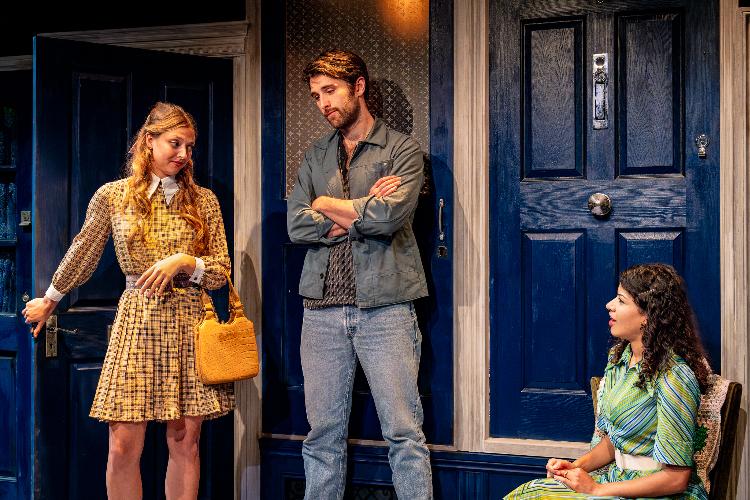In 1972, Caryl Churchill's Owners opened at the Royal Court Theatre. The play highlights the power of property ownership against the vulnerability of the tenant: it riffed on live wire issues of the time. High inflation and widespread unemployment and low wages created an atmosphere of mistrust in Edward Heath's Conservative government and an overlooked working class started to strike in protest - thereby leading to further political instability. Is any of this starting to sound familiar?
Today as the Co-op supermarket fixes security cages around baby formula and butter, rents have shot up so high that people in their 30s and 40s have their back to the wall. Reinforced by no-fault evictions, the infamous Section 21 lets landlords evict tenants without any reason given. Many younger people are forced to co-exist with an ex-partner because they can't afford to break up. Churchill's writing is - tragically - as relevant today as it was when Elton John was a newcomer to the music scene and people wore flares without a hint of irony.. Cathy Come Home the television play brought home the desperation of a single mother forced out of her house on payment of rent, and her desperate time in a cheap hotel. Shelter was formed in response and the agony of homelessness suddenly on the TV screens was also on the British conscience. Possibly that is happening again.
Stella Powell-Jones' revival is pitch-perfect in casting, delivery and atmosphere. Despite it being a rather downbeat subject, the characters are played with lightness and exaggerated emotion to make them amusing and enjoyable to watch rather than being pained by their difficult situations. The play opens as Lisa and Alec sit in their flat, she visibly pregnant. There is a knock at the door and a letting agent marches in, announcing he let himself in with his own key. He tells them their landlord plans to sell up. Lisa does the delicate dance every generation Z renter knows - she points out the drawbacks of the property, even as she is super-keen to stay on there herself. “The mould comes up worse in winter” she ventures, in the hope this flat, her home, will not sell with the ease it might suggest right now. Played by Boadicea Ricketts, the character requires emotion and at times desperation but to bring humour to these moments - not an easy task set by Churchill but one she managed seamlessly. The letting agent, spineless sidekick Worsely - excellently played by Tom Morley who brings out Churchill's black humour with confident precision - unnerves Lisa and Alec. Lisa seeks comfort in her friend Marion, who knows about property herself. But Marion turns out to have a callous side, and is willing to evict her friend if it means an opportunity to cash in the friendship. Laura Doddington is perfect as Marion - flirtatious with a former flame and then dismissive of flighty feminine emotion with mere moments in between.
This feels like an important play that highlights issues that seem to be sadly timeless: power and money trumping fairness and loyalty. It is politics with a sweetener of humour. Dark and ominous, but in a way that you find yourself and the rest of this tiny theatre laughing. I wouldn't be surprised to see this version winding its way back to The Royal Court a few months from now - the same cast of course. See it now in this little theatre tucked off Piccadilly Circus - it's not often you get to see something truly impressive with such an intimate audience.
It runs untill 11 November.
Review: Caiti Grove Photo: Steve Gregson

